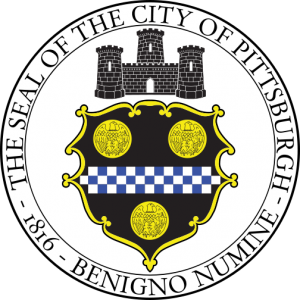

The Climate Initiative at CMU
As a member of the Higher Education Climate Consortium, Carnegie Mellon University is committed to aligning its campus practices with the Pittsburgh Climate Initiative. Programs and policies are well underway, and features are described below. Find a general overview here.
Spotlight
CMU ranked #1 in the University Athletic Association conference of the 2014-2015 College and University Green Power Challenge and has consistently ranked in the top 5 in the Top 30 University and Colleges in the EPA’s Green Power Partnership since 2010.
Education & Research
Carnegie Mellon is home to numerous research centers including the Steinbrenner Institute for Environmental Education and Research and the Robert L. Preger Intelligent Workplace. A full listing of research centers is available here.
Step Green was an experimental project for tracking, reporting, and reducing individual environmental impact. The experiment ended in June 2013, but research findings, additional information, and articles are available
Leading the way in service learning and outreach is the Leonard Gelfand Center which focuses on community-based as well as on-campus STEM education for youth.
Greenhouse Gas Inventories
Carnegie Mellon established a baseline emissions inventory in 2010 and continues to periodically conduct follow up greenhouse gas inventories. Since CMU began tracking its emissions, the university has decreased emissions by an average of 41% from baseline every year!

Detailed information and yearly summaries are available on CMU’s Greenhouse Gas Inventory site.
Energy: Efficiency, Conservation, and Alternative
Energy conservation is a priority at Carnegie Mellon. Equipment and lighting is routinely upgraded to conserve electricity. The Bellefield Steam Plant transitioned to using natural gas as of July 2009. Carnegie Mellon purchases 100% of its energy from renewable sources.
Carnegie Mellon has also been participating in the Campus Conservation Nationals since 2012. The short term goal was to reduce electricity use by students on campus and to raise awareness and create behavior change, with the long term goal of developing a dashboard system for the campus to view live electricity use.
Recycling and Waste Management
Students, staff, and faculty are committed to recycling at Carnegie Mellon. The University participates in the annual nation-wide Recycle Mania competition.
The campus is also engaged in post-consumer composting in many departments in food venues.
Buildings and Grounds
Carnegie Mellon University’s campus has 12 LEED certified green buildings as well as several green roofs.
Transportation
Carnegie Mellon subsidizes public transportation and on-campus Zip Cars, and bicycling is encouraged. All campus shuttle buses use B5/B20 biodiesel and police vehicles are E-85 flex-fueled capable. The Facilities Management fleet also has 10 electric powered Club Cars & GEMS used to move about campus.
Outreach & Engagement
The Green Practices Committee works to develop university practices that improve environmental quality, decrease waste and conserve natural resources and energy.

Scotty Goes Green is CMU’s Green Office Certificate Program. Scotty Goes Green engages Carnegie Mellon faculty and staff in a voluntary, self-guided initiative that promotes a high standard for environmental practices at Carnegie Mellon. The program supports and promotes offices that are taking steps toward reducing their environmental footprint.
Students
There are several student organizations on campus focused on sustainability and the environment. Check them out here.
Fall 2013, students also moved in to the newly established Sustainability House on campus which is a pilot Special Interest Housing program dedicated to sustainability and environmentally conscious living in the campus community. Visit them on Facebook as well

